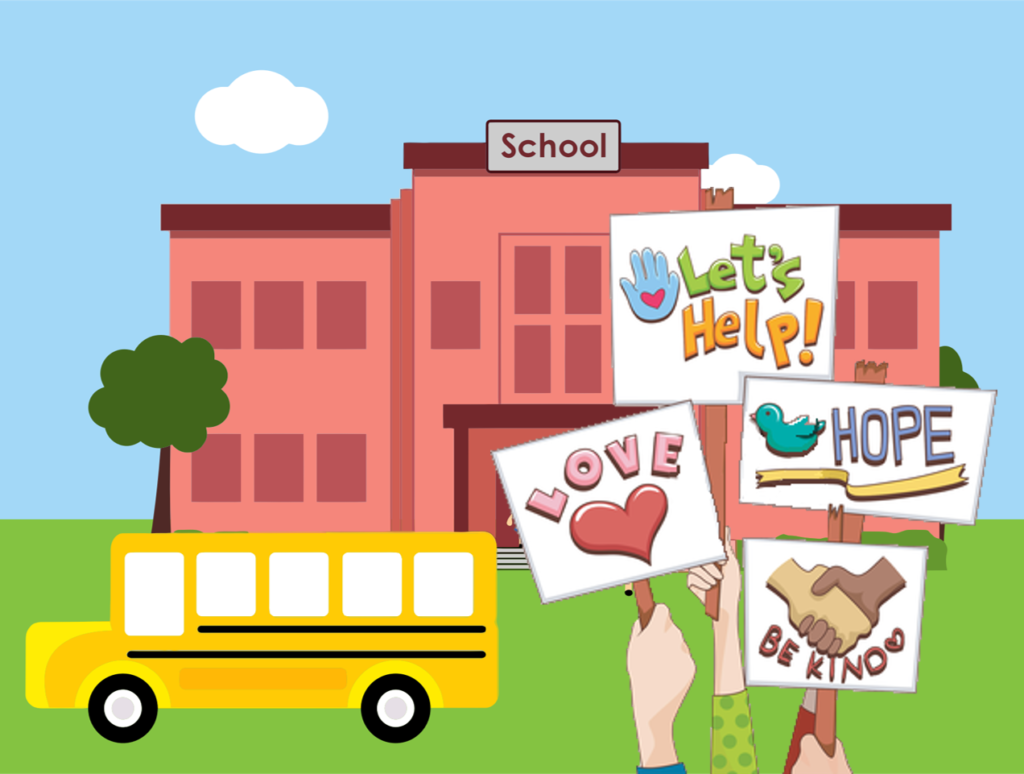In an open letter to America, former Chief of Staff of the Armed Forces and Secretary of State Colin Powell (@Colin_powell37) and his wife Alma discuss progress towards attaining five promises that were established as goals 20 years ago. Those goals are: “the promise of relationships with caring adults, safe places to learn and play, a healthy start, an effective education, and an opportunity for young people to serve others.”[1] In their letter they write:
“The America to which we aspire rewards effort, rises to challenges, and sacrifices for the good of the next generation. Improving the lives and futures of children is a moral, social, and economic imperative in our country. The well-being of children should be the common-ground commitment of our national life. If you are a parent worried about the intellectual and moral formation of your children, this is your cause. If you are a teacher struggling against influences outside the classroom that leave young people unprepared for learning, this is your cause. If you are an employer who has trouble finding skilled workers in an increasingly skills-based economy, this is your cause. If you are an activist or community leader passionately fighting against racial, social, and economic inequality, this is your cause. If you are a citizen disturbed by the existence of islands of hopelessness in the midst of plenty, this is your cause.”
I’m impressed the Powell’s are striving to bring some civility back to our society and they know they must begin with our children. In their letter, they remind us that in days now past there were strong voices at home and in the community stressing to children “Mind your manners” and “Mind who you are.” They observe that statements of this kind were “a call for young people to treat themselves and others with dignity.” Unfortunately, they note, “In many places, these community voices have grown weaker.”
Social and Emotional Learning (SEL)
Often, subjects associated with civility are found under the title of Social and Emotional Learning. In a study published by the Robert Wood Johnson Foundation, Linda Dusenbury, a Senior Research Scientist for the Collaborative for Academic, Social, and Emotional Learning (CASEL), and Roger P. Weissberg (@RogerWeissberg), a Distinguished Professor of Psychology and Education at the University of Illinois at Chicago and Chief Knowledge Officer of CASEL, conclude, “Social and emotional learning enhances students’ abilities to understand and manage their emotions, set and achieve personal and academic goals, show respect and empathy for others, establish and maintain positive relationships, and make responsible and ethical decisions. These personal and interpersonal competencies provide a foundation for success in work and relationships as adults.”[2] As many educators know, bullying (both physical and emotional) remains a significant problem in many educational settings. The ubiquitous nature of social media provides young people with many more ways to bully their peers than in times past. The objective of SEL programs is to increase student awareness and decrease incivility. Dusenbury and Weissberg report, “Extensive research shows that SEL programs can promote academic achievement and positive social behavior, and reduce conduct problems, substance abuse, and emotional distress.”
Although Dusenbury’s and Weissberg’s study concentrated on elementary-level programs, clearly SEL programs should be promoted all the way through secondary education. From bullying at school to incivility in politics, we could all use a little more kindness in our lives. Gabriella Rowe (@Gabriella_Rowe), Head of School of The Village School in Houston, asserts we need to teach children how their behavior reflects how others perceive them and, more importantly, teach them how to think about others before they act. She writes, “Do we ask our students to say ‘please’ and ‘thank you’ to be polite, or to demonstrate respect for others? Do we tell them to wait for their turn to speak so they learn self-control or to teach them to be good and active listeners? While the action on the part of the child is the same in both instances, the embedded lessons are different. The first is manners-focused: Am I showing my best self to the world? The second is focusing on others: Am I thinking about the needs of others?” Being polite and being kind are both important traits.
Rowe is concerned that a recent survey of parents found “two-thirds of respondents felt ‘the world is an unkind place for my child.'” She openly wonders whether educators are doing enough to teach kindness in school. “In truth,” she writes, “kindness is rarely overtly built into curricula or assessment at schools. There are no report cards I’ve seen that have a grade for ‘kindness’ listed side-by-side with math or science. Yet without it, our students will not be prepared to be purposeful adults. In today’s world, which can be so unkind, are we supporting the development of empathetic men and women, who work toward the greater good and not just for themselves?”
Instilling Kindness in our Children
Rowe suggests five principles about kindness be adopted in schools. Those principles are:
1. Defining kindness: “Surveys, and my anecdotal research, find that children, parents and educators use several words to describe kindness: empathy, helping, manners. Before cultivating a culture of kindness and the programs that stem from it, it is imperative that schools’ faculty and staff collaborate to create a single definition that can be reiterated throughout the students’ time at the school, and shared out to our communities.”
2. Embracing outside influences: “We cannot ignore or fully protect our students from outside influences — no matter how ugly they may be. Educators have a responsibility to use current events to talk with students and teach them about incorporating kindness and empathy into all situations.”
3. Practicing self-discipline/mindfulness: “In an era where our personal lives can be displayed on social media, it’s imperative to carefully consider what we are saying and doing. Not only should we teach children about social cues and norms, like displaying appropriate body language or correctly identifying the cause of a behavior, we must teach our children how to respond.”
4. Serving others: “Empathy is a two-way street and requires cooperation and agreement across multiple parties. A culture of kindness is not just doing service for others, but with others.”
5. Involving parents: “Educators teach kindness in the classroom, but those lessons must be reinforced at home.”
Those are wonderful principles on which to build sustainable SEL programs. To that end, Dusenbury and Weissberg recommend educators and administrators:
- Adopt evidence-based SEL programs and activities in order to improve social, emotional, and academic success.
- Provide teachers and administrators with ongoing professional development and coaching to ensure high quality implementation.
- Support and reinforce student SEL school-wide, and in family and community partnerships.
- Create state, district, and school policies and guidelines to help insure that learning goals for SEL are well-developed and aligned with elementary education, more broadly.
Any program trying to teach civility and kindness needs to ensure such principles get practiced. I’m a proponent of project-based learning and I think believe SEL topics could be woven into project-based learning. I, along with a few colleagues, founded The Project for STEM Competitiveness to assist in getting a project-based, problem-solving approaches into schools near where we live. By working together on real projects that tackle real-world challenges, students can learn to serve and work with others.
Summary
Rowe concludes, “As educators, our No. 1 job is to ensure our students are prepared to succeed in the world. Part of that includes helping them become purposeful adults who truly understand their impact on others.” The Powells add, “Advances in knowledge are changing the field of child development, but they haven’t changed the basic needs of young people. Children need to get a high quality education, avoid violence and the criminal justice system, and gain jobs. But they deserve more. We want them not only to survive, but to thrive; not only to cope, but to lead. We want them to learn not only reading and math, but fairness, caring, self-respect, family commitment, and civic duty.”
Footnotes
[1] Colin L. Powell and Alma J. Powell, “Our Cause: A Letter to America,” 2017.
[2] Linda Dusenbury and Roger P. Weissberg, “Social Emotional Learning in Elementary School: Preparation for Success,” Edna Bennett Pierce Prevention Research Center, Pennsylvania State University, 2017.
[3] Gabriella Rowe, “Principals for kindness: How to instill empathy in the classroom,” Education Dive, 10 April 2017.





